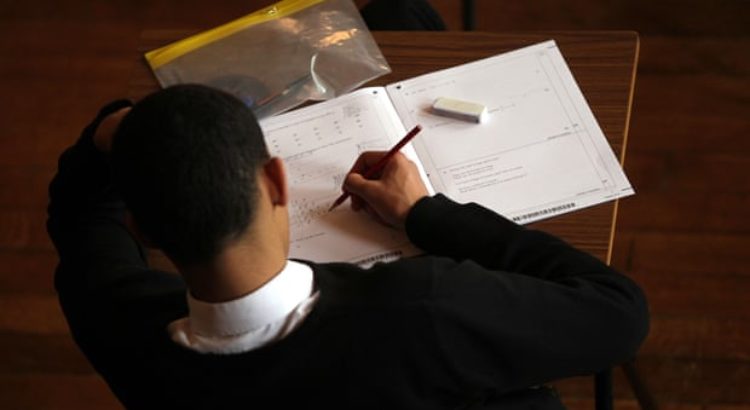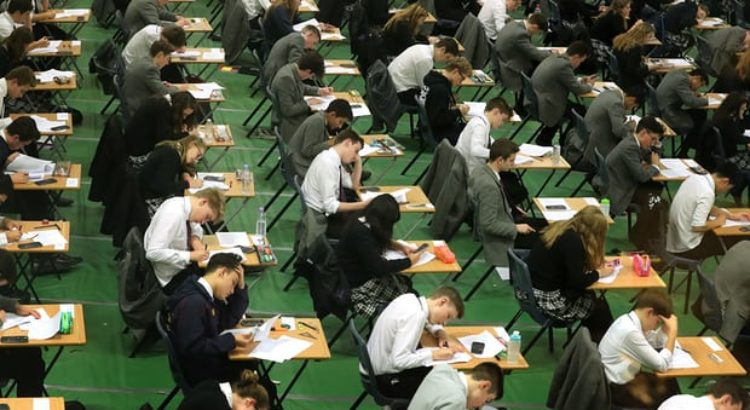By: Sally Weale.
Teaching unions and school leaders are to hold talks with the education secretary, Gavin Williamson, on Monday to discuss plans for schools and colleges in England as they start to negotiate the impact of the growing coronavirus emergency.
The government has until now resisted pressure to close schools as other countries have done, but there is mounting concern in the sector about how schools will continue to function with growing numbers of staff required to self-isolate.
The education secretary is also expected to address concerns about potential disruption to GCSEs and A-levels this summer, amid calls from some to delay examinations until September or even postpone until 2021, which could result in pupils having to repeat the current year.
School leaders are also expected to raise concerns about the impact of any potential closures on children in poverty and those who are vulnerable and depend on school for food and security. They will also call for all inspections by Ofsted to be cancelled to allow headteachers to focus on the current emergency.
Before the meeting with teachers’ leaders, the government issued updated guidance to schools reiterating its recommendation that they should remain open. The guidance acknowledged, however, that some could be forced to close if too many staff had to self-isolate, causing “operational issues”.
The guidance, published by the Department for Education and Public Health England, advises that pupils and staff who develop a continuous cough or fever at school should be sent home. Children who become unwell at school should be isolated while they wait to be collected, ideally in a room behind a closed door with an open window and separate bathroom where possible.
Staff dealing with suspected cases of Covid-19 do not need to go home unless they develop symptoms themselves. In most cases, closure would not be needed, the guidance says. “If there is an urgent public health action to take, the educational setting will be contacted by the local Public Health England protection team who will undertake a risk assessment and advise on any actions or precautions that should be taken.
“PHE will rarely advise a school to close but this may be necessary if there are so many staff being isolated that the school has operational issues.”
Among those due to attend the meeting is Paul Whiteman, general secretary of the National Association of Head Teachers. Speaking before the talks, he said: “School leaders are obviously concerned about the impact on exams and assessments but right now their main priority is keeping children safe.
“It’s important that we all work together to do the maximum we can. We will be working jointly with the secretary of state to establish a credible plan for schools and colleges in the coming weeks.
“We will use the meeting to bring some clarity and direction. Vulnerable children and families are uppermost in our minds. For some children a day at school is a place of sanctuary and nourishment as well as a place of education.”
Geoff Barton, the general secretary of the Association of School and College Leaders, who is also due to attend the meeting, added: “The concerns we will be raising with him are the challenges of keeping open schools and colleges when a growing number of staff are away from work because they are self-isolating; the potential for disruption to GCSE and A-levels and what contingencies will be put in place; and how we ensure children in poverty do not go hungry and that vulnerable young people are safeguarded if schools are closed.
“We aim to work through these issues in order to arrive at constructive solutions about the way ahead. School and college leaders are showing calm and assured leadership in these difficult times and we can reassure the public that everything that can be done to support young people will be done.
On Sunday, Hamid Patel, the chief executive of Star Academies, which runs a string of outstanding state schools in London, Birmingham, Manchester and other cities, called on the government to “do the unthinkable” and postpone this summer’s exams immediately, along with Sats tests to be taken by England’s primary school pupils, to save lives during the peak infection period of May to June.
“Cancellation is the only sensible and humane option. It will go a long way to ensure the success of the ‘delay’ phase of the government’s strategy. It could save tens of thousands of lives because it will ensure good decision-making, and good decision-making by individuals is central to how we manage this crisis,” Patel said in a comment piece published by the Guardian.
The Department for Education confirmed the meeting was taking place, but made no further comment.
Source of the article: https://www.theguardian.com/education/2020/mar/16/coronavirus-education-officials-to-discuss-possible-school-closures-in-england








 Users Today : 53
Users Today : 53 Total Users : 35459959
Total Users : 35459959 Views Today : 65
Views Today : 65 Total views : 3418530
Total views : 3418530